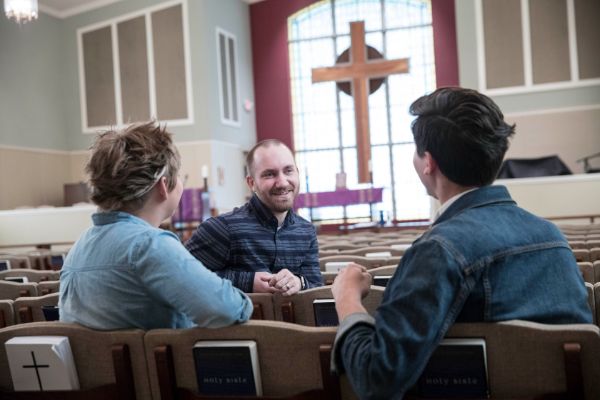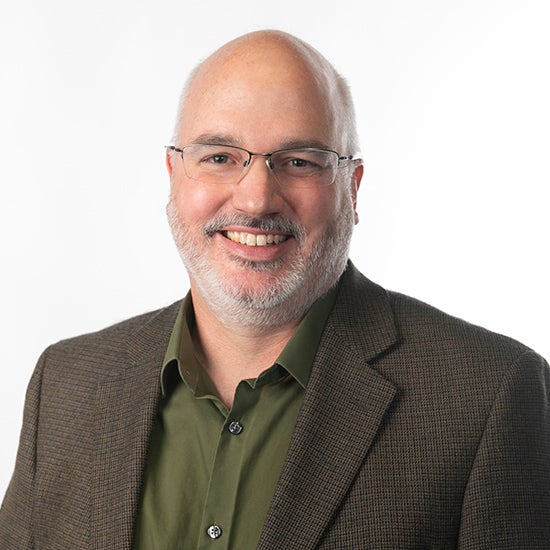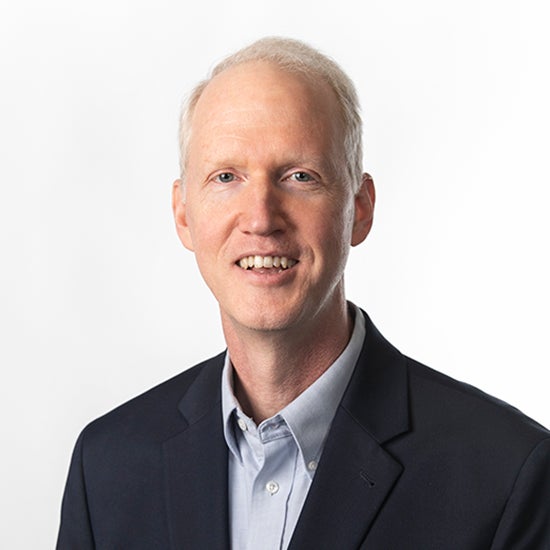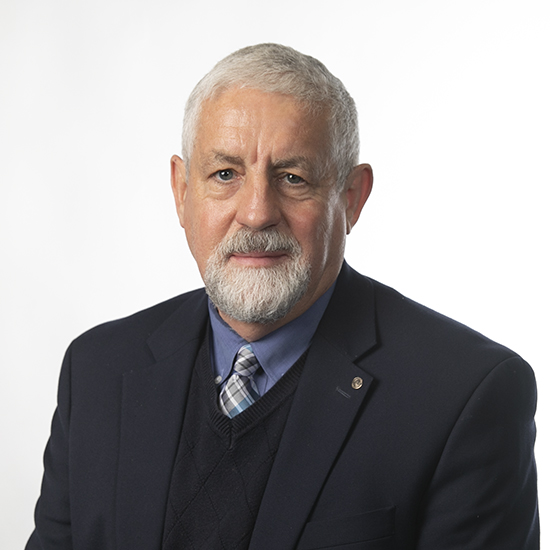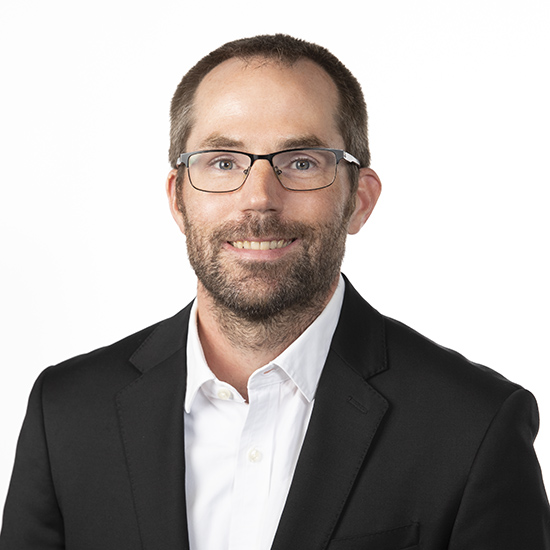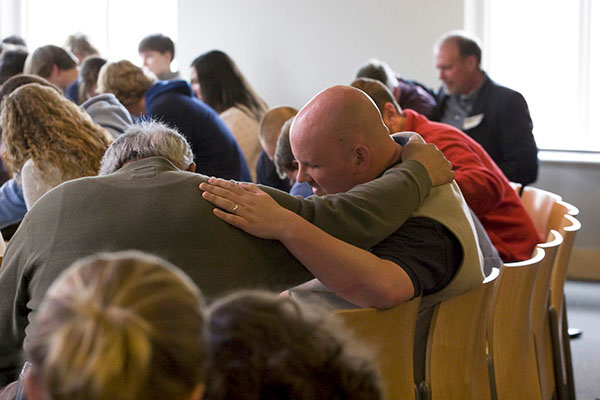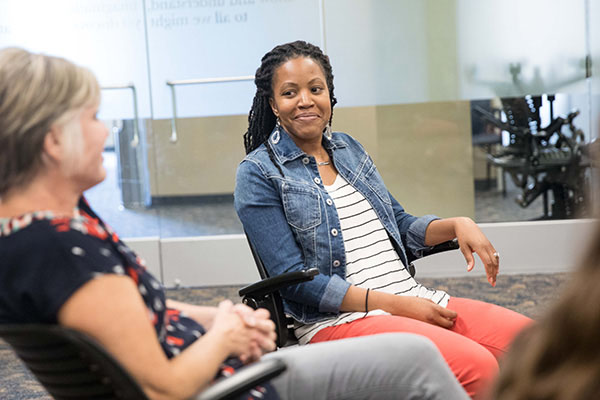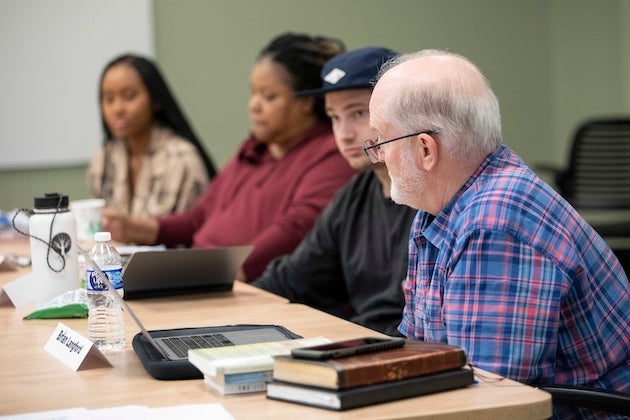Program Overview
Lipscomb University’s Master of Divinity (M.Div.) program helps you expand your knowledge of Scripture and the theological traditions of Christianity across the world through a mix of online and in-person courses. This hybrid program is the most comprehensive pastoral degree at the Hazelip School of Theology.
The program provides biblical knowledge, missional leadership training and practical ministry experience that empowers you to grow into a spiritual leader who can support lives of faith in your community. Whether you are working toward a formal ordination in your particular faith community or simply seeking a thorough training credential that can sharpen your abilities, you will be prepared for the Kingdom work you are called to lead through our M.Div. program.
Master of Divinity Program Outcomes
With the aim to cultivate spiritually reflective leaders, the M.Div. degree program emphasizes the integration of theological learning with the skills needed to address the complex issues encountered in the practice of ministry. Through rigorous theological training, you can achieve:
- A deeper faith in Jesus Christ and the development of a spirituality that will sustain life in ministry;
- Competence in the interpretation of the Bible;
- A critical knowledge of the Christian tradition and abilities to help the church shape its future in light of that tradition;
- Skills to lead the church in mission within a rapidly changing and diverse cultural context;
- Competence to practice day-to-day ministry with integrity.
Pursue Your Calling with a M.Div. Degree from Lipscomb
Want to nurture Christian communities and share the word of God? Join us at the Hazelip School of Theology to earn your M.Div. degree and pursue your calling. We provide guidance, spiritual support and in-depth ministry study for you to become a true servant leader. Apply to Lipscomb University’s M.Div. today to start your impactful journey or request information to learn more!
Graduate Bible Certificates
Hazelip School of Theology offers graduate certificates in a variety of theological disciplines to further your Christian formation and ministry skills. Each certificate can be applied to certain master’s programs (specified on each certificate’s webpage), giving you a foundation to the program curriculum. The MDiv can contain the Old Testament, New Testament, Pastoral Leadership, and Theological Studies Certificates.
New Testament Studies Pastoral LeadershipTheological Studies
Admissions Requirements
- Application with $50 nonrefundable application fee
- Three letters of recommendation: one from a university administrator or professor (we do accept an additional professional or ministry recommendation in lieu of academic recommendations), one from a professional supervisor/employer and one from a church leader or minister
- Official transcripts emailed to gradadmissions [at] lipscomb.edu (gradadmissions[at]lipscomb[dot]edu) or mailed to Graduate Admissions (One University Park Dr., Nashville, TN 37204)
- Bachelor's degree
- Undergraduate or graduate GPA of at least 2.75
- 750-1,000-word essay discussing the applicant's religious heritage, career goals and how Hazelip School of Theology might contribute to the achievement of those pursuits
Priority deadline for Spring 2026 is November 3, 2025. Priority deadline for Fall 2026 is July 1, 2025.
Graduate credit hours may be transferred from another ATS-accredited institution. A maximum of 12 hours will be counted toward the M.A.C.M., a maximum of 21 hours towards the M.T.S., and a maximum of 48 hours for the M.Div. degree. The director or appropriate faculty member of the graduate program will evaluate the course(s) being proposed for transfer and make a determination of suitability. No course with a grade below a “B” will be considered for transfer. No more than half of a student’s hours from a completed degree may be transferred. For transfer credit questions from non-ATS accredited institutions, please contact the director of the Hazelip School of Theology for more information.
International Students
International students are required to be proficient in written and oral English before enrolling. A score on the Test of English as a Foreign Language (TOEFL) of approximately 570 on the paper-based test, or 80 on the iBT, or an IELTS exam with an overall band score of 6.5 is the minimum accepted for admittance. For more information, see International Students admissions policy.
Courses
With a transformative curriculum design, the Master of Divinity program offers the integration of various theological disciplines with real contexts of ministry, while providing flexibility for you to pace yourself through the robust training.
Advanced standing may be granted for as many as one-third of the total hours (approx. 24) required for the M.Div. degree. Only those who have undergraduate theological education from outstanding regionally-accredited colleges and universities will qualify. Any course for which advanced standing is granted must be a reasonable substitute for the course required by the Hazelip School of Theology, and the student must have gained an “A” or a “B.” The granting of such credit is subject to the decision of the HST director and faculty assessor. Faculty at the Hazelip School of Theology will assess which undergraduate coursework is suitable for potential credit. The student will be notified before the examination which undergraduate courses are being considered and how they correspond with the graduate courses listed above.
The following graduate courses are typically granted credit in the advanced standing process:
GB 5483 - Introduction to Theology
GB 5603 - Introduction to Ministry
GB 5083 - Old Testament Critical Interpretation
GB 5093 - New Testament Critical Interpretation
GB 5493 - Global Christianity
GB 5043 - Biblical Hebrew I or GB 5033 - Biblical Greek I
GB 5063 - Biblical Hebrew II or GB 5073 - Biblical Greek II
Contact Evan Richardson at evan.richardson [at] lipscomb.edu (evan[dot]richardson[at]lipscomb[dot]edu) for further information.
Program Model
You will gain first-class, comprehensive learning with flexibility in how you construct the experience. Allowing students to complete the program part-time or full-time, our format offers 15 hours of elective space for you to customize your learning to a particular area, whether that’s in Scripture, theology or specialized ministry skills. With various delivery formats for your classes, you will be able to access a quality Hazelip education even if you are not in the immediate vicinity of Lipscomb University's location in Nashville, Tennessee.
M.Div. courses appear in both online and in-person modalities. Most online courses will be asynchronous. However, our biblical languages courses are synchronous, online to ensure the utmost interaction with the ancient languages. Our in-person courses have two modalities. Some courses meet over weekend intensives (Friday-Saturday) approximately 2-3 weekends a semester. Alternatively, classes gather for a 2-day intensive with occasional, synchronous, online meetings throughout the semester.
Tuition & Aid
At Lipscomb University, we strive to make education affordable. Tuition is currently $540* per credit hour, however, all students in the Hazelip School of Theology receive a 25% discount, which brings the cost per credit hour to $405 per credit hour. Additional scholarship may be awarded to students who submit applications before each term's priority deadline. Lipscomb also offers interest-free monthly payment plans depending on the length of each semester.
*Note: Graduate tuition rates may increase annually, effective at the start of the summer term.
Why Earn Your Master of Divinity Degree at Lipscomb?
Our Faculty
Meet our key faculty.
Career Paths
Chaplaincy
Serve others in their seasons of need as a chaplain in a variety of settings, including the military, hospitals, hospice and universities.
Christian Publishing
Play a substantive role in the publishing industry where you can use your critical thinking skills and honed communication abilities.
Nonprofit Work
Lead organizations in their faith-centered mission as they do good in culture and work to improve the lives of others in your community.
Ministers
Provide pastoral leadership in various aspects of congregational ministry.
Private Christian School Teachers (K-12)
Instruct students in Bible and other spiritual formation classes common to these settings.
